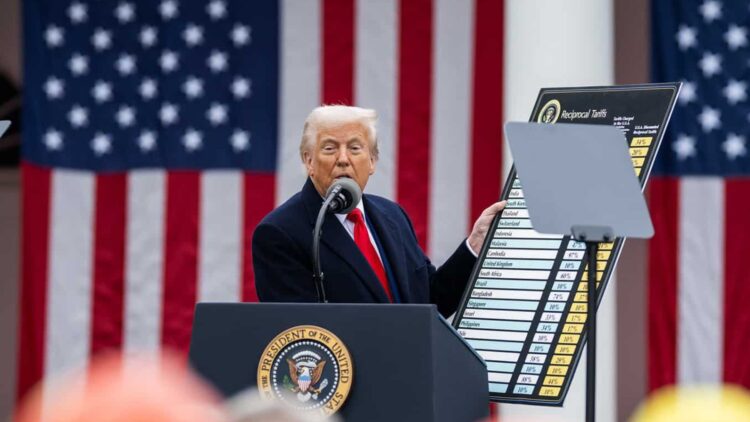International trade is going through an important moment, as Donald Trump recently announced tariffs targeting the European Union and Mexico. On Wall Street, this new situation at first instance has not had an impact, as Dow Jones, the S&P 500 and the Nasdaq were not really affected. Data from the CBO (U.S. Customs and Border Protection) have also been relevant to Trump’s new tariff decision. In the same vein, Marcelo Ebrard stresses that this measure is not fair and Ursula von der Leyen opens the door to debate. Read on to learn more about the situation.
“Those new levies rekindled tensions with two of the largest U.S. trade partners and threatened to raise consumer prices”
Stocks closed narrowly higher on Monday, shrugging off President Donald Trump’s announced tariffs over the weekend pointing the European Union and Mexico. Those recent levies rekindled tensions with two of the largest U.S. trade partners and threatened to increase consumer prices. The Dow Jones Industrial Average climbed 88 points, or 0.2%, and at the same the S&P 500 ticked up 0.1%. The tech-heavy Nasdaq increased 0.2%.
New tariffs will take effect on Aug. 1
Trump on Saturday presented new tariffs on the European Union and Mexico that will take effect on Aug. 1. That beginning date matches the onset of levies issued for more than 20 other countries in recent days, taking into account top trade partners Canada, Japan and South Korea.
In a letter posted on his social media platform, Trump accused Mexico for its alleged not successful attempt to cease the transport of fentanyl into the U.S. Between September and April, almost all fentanyl seized by the U.S. came through the southern border with Mexico, according to U.S. Customs and Border Protection (CBP).
Mexican in response to a previous set of tariffs
In response to a earlier set of tariffs issued in February, Mexico vowed to take steps to address the transport of fentanyl, prompting Trump to temporarily pause the levies. In a statement posted on X, Mexican economic minister Marcelo Ebrard underlined that Mexico had already been negotiating with the U.S. to “protect businesses and jobs.”
“We were informed that, as part of the profound changes in U.S. trade policy, all countries will receive a letter signed by the President of the United States establishing new tariffs starting August 1st,” Ebrard said. “We stated at the meeting that this was an unfair deal and that we did not agree with it.”
Trump’s sharply criticism
Trump sharply criticized the EU in another letter posted on social media, declarating that the the U.S. runs an unacceptably high trade deficit with the EU. In a statement released on Saturday afternoon, European Commission President Ursula von der Leyen said the EU remains committed to “dialogue, stability, and a constructive transatlantic partnership” by the August 1 deadline.
However, she said, a 30% tariff on EU exports would hurt supply chains, businesses and consumers on both sides of the Atlantic. The EU “will take all necessary steps to safeguard EU interests, including the adoption of proportionate countermeasures if required,” von der Leyen wrote.
In addition, French President Emmanuel Macron agreed on X that the European Commission must “resolutely defend European interests.”
“In particular, this implies speeding up the preparation of credible countermeasures, by mobilising all the instruments at its disposal, including anti-coercion, if no agreement is reached by August 1st,” he wrote in his post.
How long the EU’s countermeasures will be delayed?
The EU’s countermeasures, which cover $24.54 billion of US exports, will be delayed until the beginning August, von der Leyen announced Sunday. European officials have also carried out a second list of countermeasures that is “by now agreed to,” she said.
Macron and von der Leyen’s sentiments were echoed by other European Union officials in the strongest public pushback to the Trump administration’s political pressure and trade whiplash that ensued in May.

